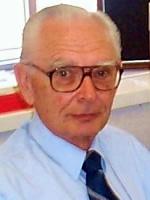Levels of Work Concepts Have Direct Impact on Planning for Leadership Development in Organizations
Speaker A To a group of very talented people who resided at Fort Benjamin Harrison in the 70s, who wrote monographs, one of which was monograph eight and one of which was monograph nine. Those were lo...
Transcript of the presentation video
NOTE: This transcript of the video was created by AI to enable Google's crawlers to search the video content. It may be expected to be only 96% accurate.
Speaker A To a group of very talented people who resided at Fort Benjamin Harrison in the 70s, who wrote monographs, one of which was monograph eight and one of which was monograph nine. Those were looks at leadership by level and leadership performance requirements by level, which is Elliot's notion as well. But I don't think that group had heard of Elliot Jacks at that point in time. So what you have, if you have bright, capable people looking at phenomena, what you have eventually in science and I think almost anywhere else, is a convergence of ideas when the time is ripe. I think what I would do to answer that question if I were designing a curriculum for either civilians or for the military, it would have to reflect what I think an individual needs to learn at each specific point in time to be ready for the challenges that come next. So my sense of it is that I would want in the early schools to teach notions around team building and the whole emotional intelligence notion. It's the interpersonal part of the broad three. It's self awareness, self management, awareness of others or sensitivity to others and interaction management. And to me that's at the heart of how to go about creating social capital. In an organization without social capital, you really won't have intellectual exchange. And so my sense of it is that's what I would want to get across first, an individual who is not capable of self management and interaction management has no business going further beyond that. What I would want is someone who is able to understand organizations as systems and basically understand how to set the context in an organization that will facilitate the work of leaders at the direct level. Once you set that context, basically the context itself should help evoke leader behavior that's advantageous to the organization, to the mission, and to the stakeholders among whom are the followers. In a way that's sort of like there's a body of thought now in the management literature about client orientation or service orientation. So client centered, service centered is sort of the same broad notion. But what you have to have then is an understanding of organizations or systems and how to set conditions within the organization that facilitate the action of direct leaders. And at the next level above that, basically, I think the next level above that is not how to run an organization. In the army, for example, the people who run organizations are division commanders and below a lieutenant general, corps commander or principal staff officer is not running an organization. They are setting the context for how the organizations ought to function. And again, what Elliot would say is that individuals at that level are understanding the environment and doing what they can to condition the environment so that it provides a more favorable milieu for the operation of the organization. So in a way that's stepping beyond the organization transcending the organization and understanding the broad system of systems within which the organization functions. And the question then is what can I do to influence that? So you would need, I think, to have those three broad levels of expansion of required capability in order to have a full scale set of things for developing your true strategic leader. I think, again, I don't want to plug ICAF too much, but I think at ICAF when I was there, we had it right in our first semester. We had a broad strategic leadership course, core course. We had a political science course. We had a macroeconomics course. We had a grand strategy course, and we had a military strategy course. Those five were taught simultaneously. And we had teaching teams composed of one member each from each of the departments teaching those courses. And those teaching teams met to coordinate what they were doing in the hope that that would bring students to be more integrative in how they carried material from one domain to the other. Now, I know at the Army War College it's taught in chunks and thinking in terms of going to dinner. I'll have my fillet of soul now. Now I'll have my creamed asparagus. Now I'll have my baked potato. I guess that's all right if you're sort of linear, but I enjoy the blending of flavors. So I might still be chewing my creamed asparagus at the same time that I'm sampling the remnant of the last bite of baked potato. And sometimes those subtle blendings are truly enjoyable. Now, my sense of it is the four star general who doesn't enjoy those subtle blendings probably is not going to be doing cross domain thinking.
Major organizations and consulting firms that provide Requisite Organization-based services





